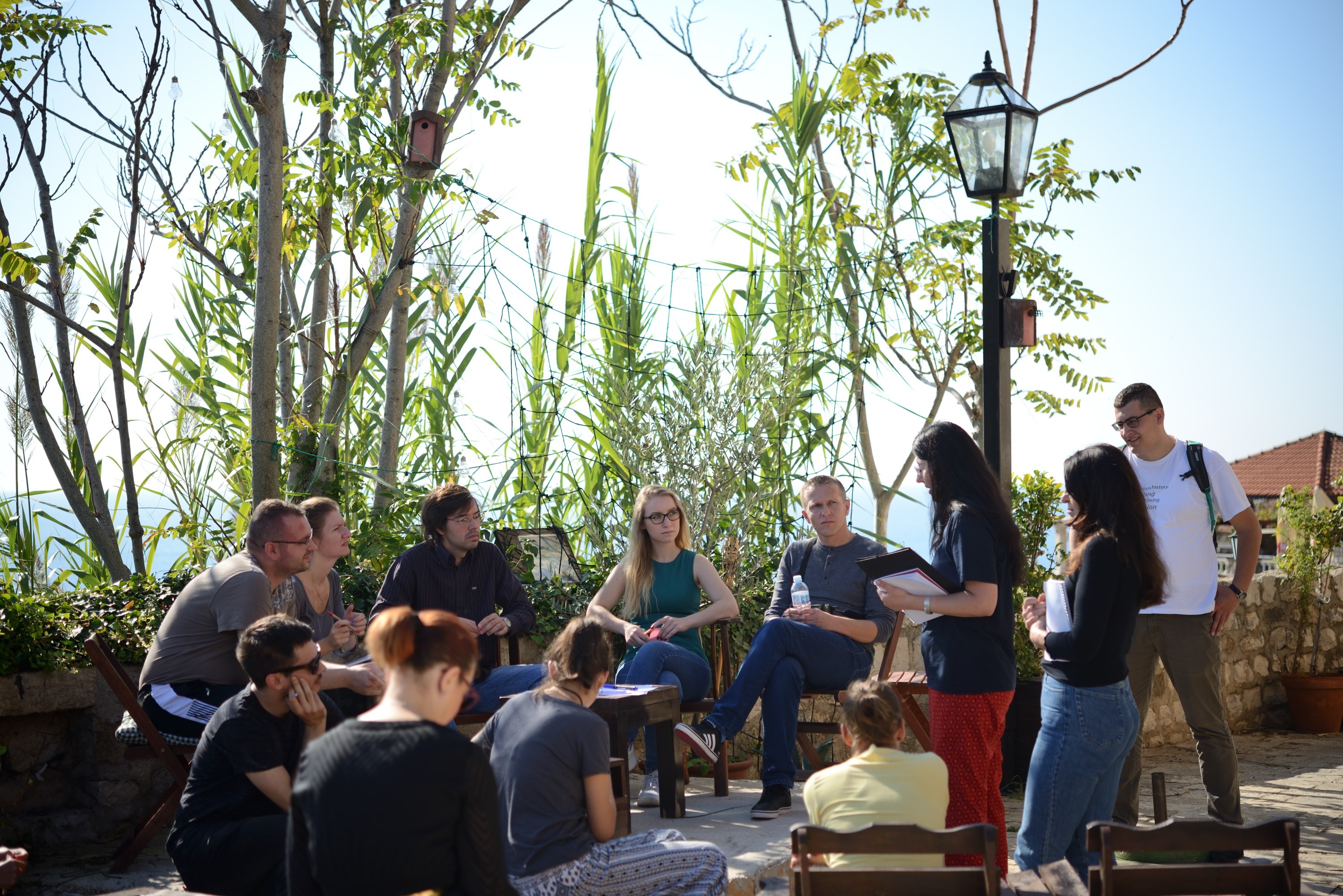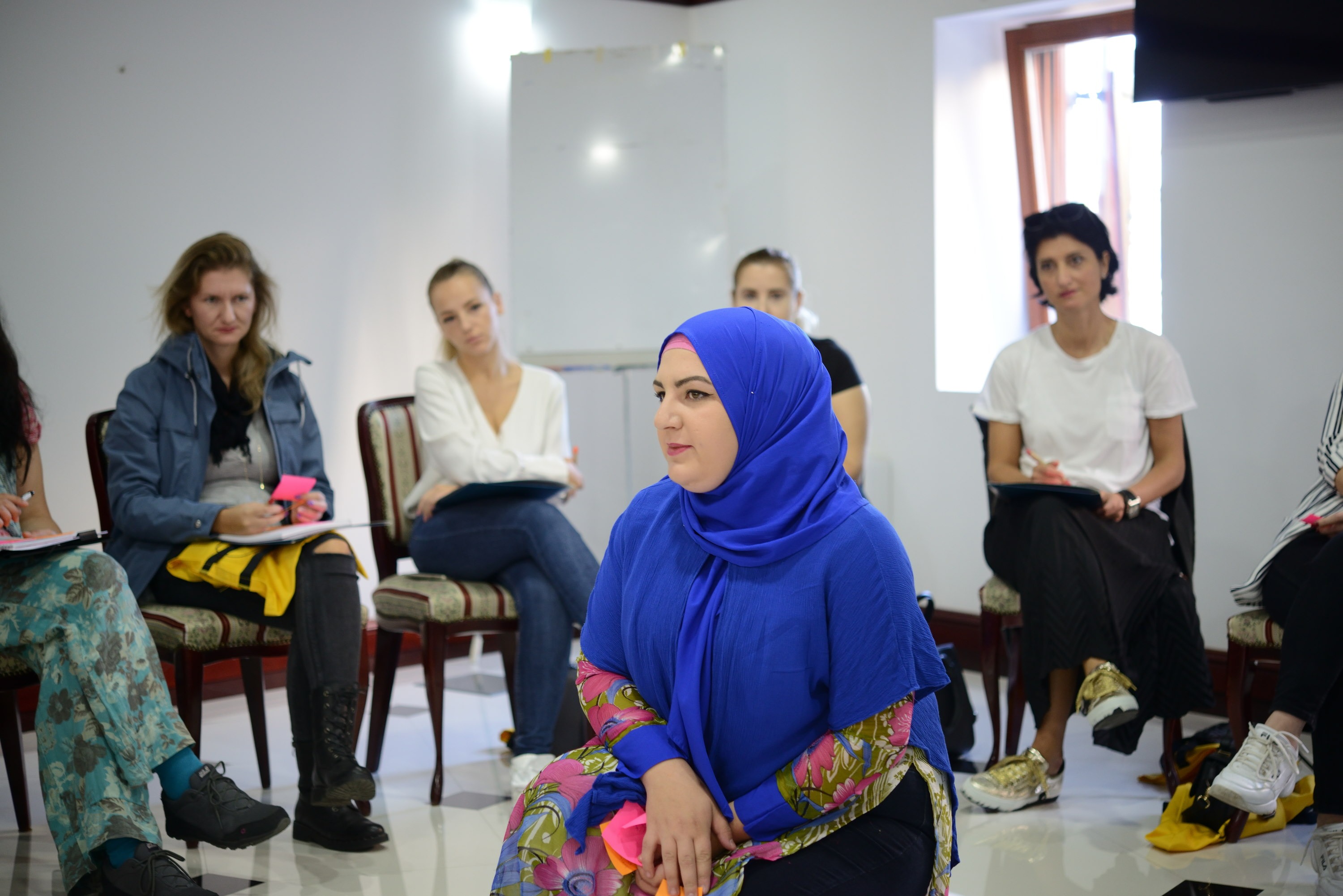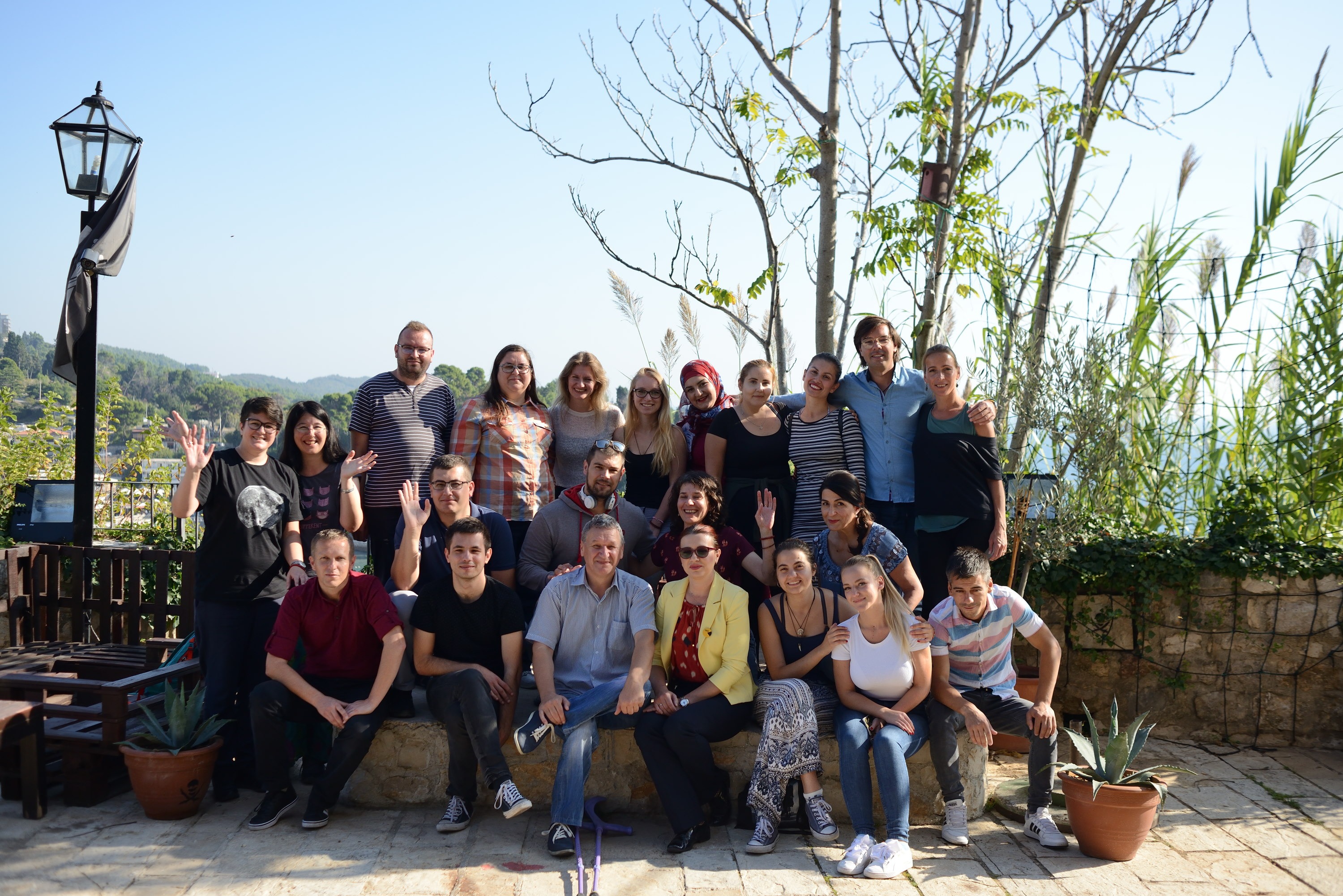The 43rd Basic Training in Peacebuilding was held in Ulcinj, Montenegro, from 18 to 28 October 2019. The October summer, the beauty of Ulcinj Old Town and the hospitality and professionalism of our hosts were the best support to our joint endeavour.
The training brought together 20 participants from different spheres of social life; in addition to an anthropologist and a psychologist, there were students, human rights activists, politicians, educators, reporters, economists, etc. The members of the training team were Ivana Franović, Nedžad Novalić, Tamara Zrnović and Davorka Turk.
In addition to the continuing trend from a few years back that we receive significantly more applications from women than from men, this year again we had a few last-minute cancellations. Ultimately, the group was made up of 12 women and 8 men and the participants came from Bosnia and Herzegovina (6), Croatia (5), North Macedonia (3), Serbia (3), two participants from Kosovo and one from Montenegro.
We received a total of 148 applications for the training, of which 89 from women, 58 from men and one application that was gender-neutral. The largest share of applications came from BiH (66), there were 26 applications from Serbia, 20 from Montenegro, 17 from North Macedonia, 11 from Kosovo and 8 from Croatia. The age of the participants ranged from 22 to 56 (average age 32).
Numbers, however will not tell you much about who we are or where we feel we belong. There were among us those who were a minority in their home communities, those who simply never had an equal starting chance in life as the majority, either due to additional needs or special life circumstances. We worked with dedication and commitment to such an extent that we never had to wait for anyone or run late with our workshops. Our approach was serious and, to a considerable extent, intellectually considered, though this was not an imperative and though it seemed at time that it would have been easier to react straight from our hearts instead of looking for the right worlds.
Although we in the team are always a bit impatient to get to the “difficult topics”, which are the main motivation for organising these kinds of trainings, it turned out once again that the time and effort invested in familiarising everyone with the basics of teamwork (without which peacebuilding would not be possible, because it always requires joint, collective action), bringing to light our own prejudice, their personal and social causes and consequences, as well as becoming aware of different forms of social violence and its impact on our lives, and the dynamics of conflict in general — all these are necessary to prepare us for working on effecting social change. This is also a time to form space within the group, a space that feels sufficiently safe for us to freely express exactly what bothers us, our grievances related to our daily life’s struggles as much as the wars from our recent past that are a common burden to all of us.

Presumption Boxes
Part of this ‘package’ are also our socially assigned gender roles that dictate the limits within which our life experience is to be contained, what we are allowed as women and as men and what is expected of us, as well as the social sanctions we can expect to face if we overstep the limits of our social roles. In the past few years, we have seen a return to traditional patriarchal models and in that sense our trainings simply provide a miniature of the societies we come from. This year, however, we discussed this topic very constructively, and the workshop itself, unexpectedly and unusually, resulted in greater understanding and bonding within the group The same happened with the workshop on national identities, which we feel as our own or we feel are imposed on us, but here at least we had an opportunity to think about how they define our social position, how they impact our self-image and the responsibilities we undertake, about the moments when these identities are important and those when they are irrelevant. We found that when we remove this type of definition, we are all equally vulnerable beneath our skin, and we all care about the selfsame fundamentally human things such as love, family and friends.
Dialogue about these topics enables us not just to hear how people from the “other side” feel, see their perspective of wartime events, but also to bring to light the wounds we carry within ourselves. In some cases, these are our own wartime traumas, sometimes they were conveyed to us as stories or founding myths of our national or ethnic community. The training is an opportunity to open up grievances and discuss the things we hold against people “from the other side”, but also to see which topics we are forbidden to open inside our societies. This taboo commonly concerns facing the crimes committed “by our side”, the taboo are the victims of the other side and marking sites of suffering of others in the community where “we” are the majority, as well as the narrative of the “perpetual sacrifice of our people, a people that had never done anyone any wrong”. An even greater taboo is any talk in our societies that may be construed as questioning the very foundations of the state. This would include discussing the nature of the war (aggression and/or civil war), the responsibility of religious communities during the war, celebrating ‘victories’ with high casualties on the other side, celebrating with no thought given to those who were killed. A particular burden is presented by generalisations where whole peoples are held responsible for the committed atrocities. However, now we at least have the opportunity to ask who is making our recent past into a taboo and why, and what needs to change in our societies so that we may establish an attitude of fairness towards the past and make a step towards building lasting peace. This helps us understand that we have the responsibility to open up important issues where this is possible, where it si important, be it within our own family, among our colleagues or friends, at work or within our social network.

On the Future
Our greatest achievement was getting the group to openly discuss these issues. Albeit with some awkwardness when faced with generalised criticism of their own ethnic community. Crucial, then, is the moment when we begin to understand that how others perceive us does not necessarily correspond to how we identify ourselves, but is instead based on our being part of a society or community. This belonging gives us legitimacy, but also a responsibility to do what we can to change our societies so that they no longer present a threat to anyone. Almost as a rule, such efforts mean making steps that will take us out of our comfort zone, but this is the only way we can move forward, both on a personal level and as societies. Sometimes, we really cannot do anything to address the injustices committed against others, but we always have a voice that can be heard; sometimes the only thing we can do against the voices of hatred is to come up with actions that will at least confuse them, if not completely undermine them, and the power to show that we, us who want to build a future in cooperation with our neighbours, are at least as numerous if not more numerous than those who spill their hatred loudly and shamelessly across public space, city streets and social networks.
As a team member said, when you work morning to night for ten days straight, results are inevitable. The training was very intensive and breaks served the purpose of a well-deserved respite, or to continue discussions started at a workshop. By the end of the training, you come to understand that, as one participant put it, every person is a soul, every individual story is special, each piece of information and experience invaluable. We could only add to this that — as at the training, thus in life.
We would like to thank the staff at Palata Venezia for, as always, providing us with just the kind of secluded space in the Old Town, overlooking the coast, that we needed to imagine a future we would like to live.
Photo Gallery HERE
